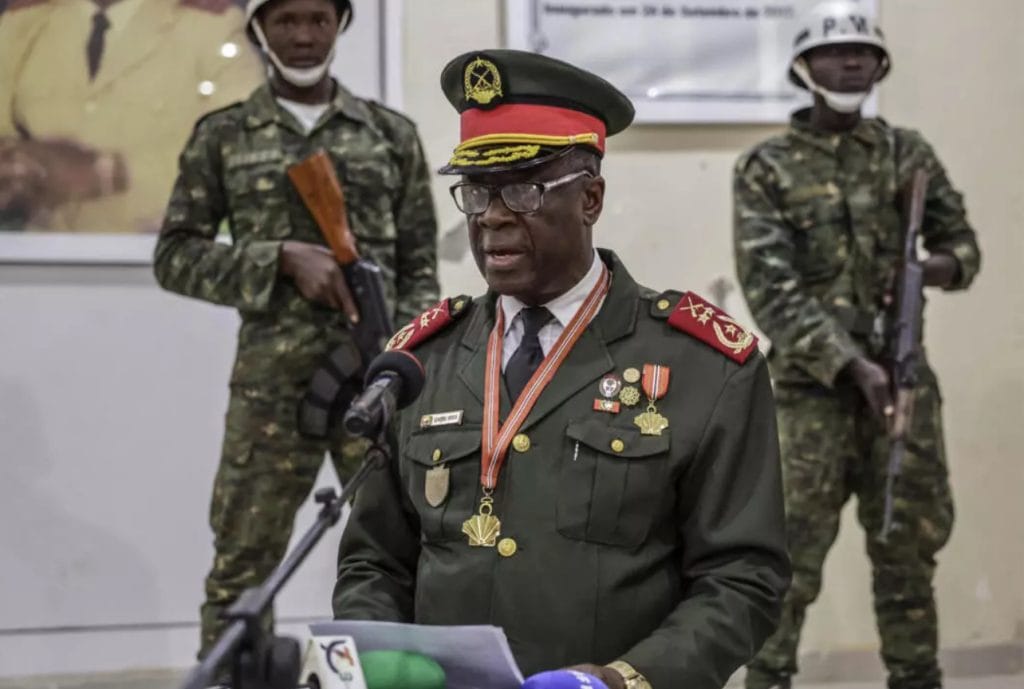The military, calling itself the “High Command for the Restoration of Order,” said the takeover was necessary to “preserve stability” as rival candidates traded victory claims before official results were released. The transitional period is expected to last one year, according to local media.
Uncertainty over Embaló’s whereabouts
Embaló, speaking briefly to international media late Wednesday, said he had been “removed from office.” His location remained unclear on Thursday, and the army has not confirmed whether he is in custody.
Witnesses reported heavy gunfire near the electoral commission, the presidential compound and other strategic points in Bissau shortly before the coup announcement. Soldiers later imposed an overnight curfew and closed land, air and sea borders.
Foreign observers unreachable
Election observers from the African Union (AU) and ECOWAS said several members of the national electoral apparatus were detained and urged the military to release them immediately. Some foreign observers were unreachable on Thursday.
A spokesperson for ECOWAS said they had been unable to contact members of their monitoring teams still inside the country.
Regional and international condemnation
AU Commission Chairperson Mahmoud Ali Youssouf condemned the military action and called for the unconditional release of all detainees. ECOWAS leaders also denounced the takeover, expressing concern over the arrests of senior officials and electoral workers.
Central Bissau remained largely quiet on Thursday morning, with soldiers manning major intersections. Shops, banks and public offices stayed shut as residents remained indoors despite the lifting of curfew orders.
Tensions surrounding disputed vote
Provisional results from Sunday’s presidential election had been due Thursday. The vote pitted Embaló against Fernando Dias, a former civil-society figure who became the main challenger. Both candidates claimed victory without official confirmation.
Dias accused Embaló of orchestrating a “fake coup” to avoid accepting defeat. His coalition demanded the publication of election results and the release of detained figures, including former Prime Minister Domingos Simões Pereira, detained on Wednesday according to relatives.
Security forces dispersed small gatherings around Pereira’s reported detention site and near Dias’s home. Tear gas was used, and witnesses said soldiers fired live rounds in the air, though no casualties were reported.
Country long troubled by coups and narcotics trade
Guinea-Bissau, a coastal nation between Senegal and Guinea, has experienced repeated political upheavals since independence in 1974. The country has faced numerous coups and attempted coups, with the military frequently shaping political transitions.
Analysts have also noted the expansion of international drug trafficking networks, which use the country as a transit corridor for cocaine shipments toward Europe. Critics of the previous administration said narcotics networks strengthened in recent years, a claim Embaló rejected.
Dias had campaigned on preventing further military interference in politics, while Embaló has frequently stated that he survived multiple coup attempts during his time in office.



